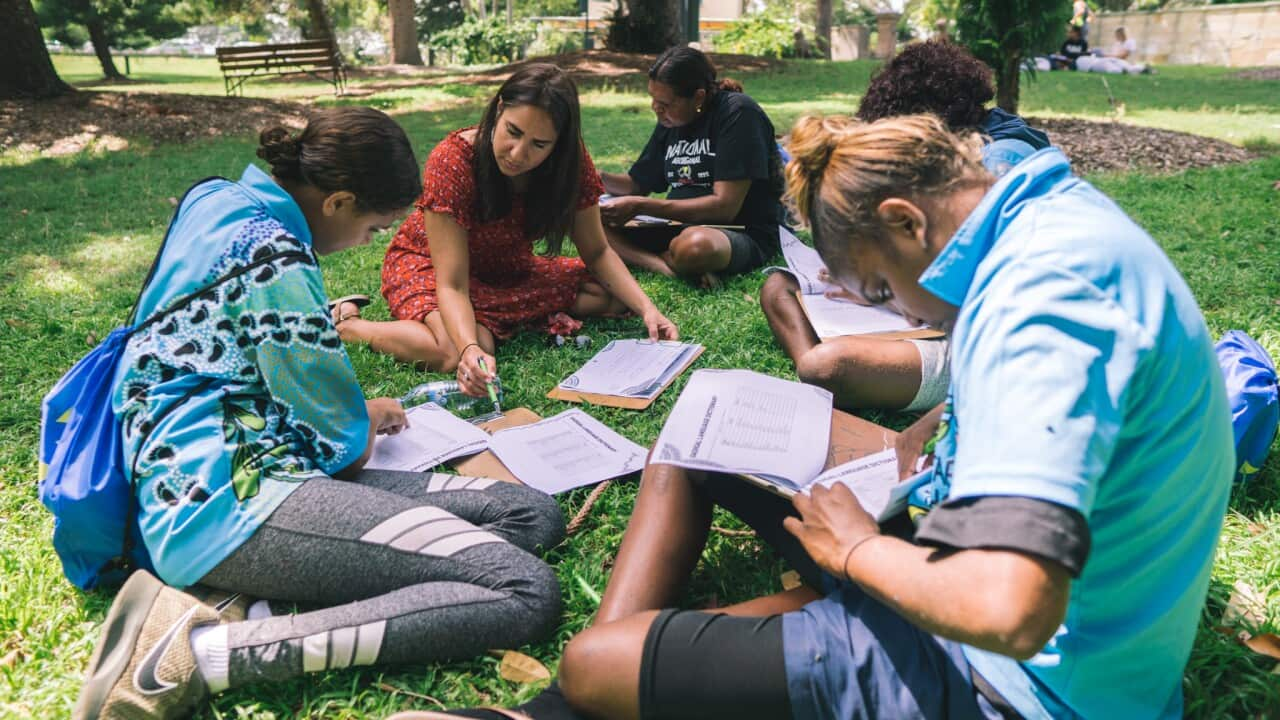A United Nations gathering which began in New York this week has heard speeches calling for urgent action to preserve and revitalise Indigenous languages in Australia and around the world.
The UN Permanent Forum on Indigenous Issues began on Monday with calls for the UN’s International Year of Indigenous Languages to be extended to a decade.
The importance of language was also acknowledged by the UN General Assembly President Maria Fernanda Espinosa Garcés.
"For Indigenous Peoples, language is intertwined with survival," she said.
Ms Espinosa Garcés underscored the threat faced by Indigenous languages by saying: "If we were talking about a species of animal, we would be sounding the alarm about extinction."
Indigenous languages are disproportionately at risk of disappearing globally and Australia is no exception.
There were around 250 Indigenous languages, including 800 dialects, spoken at the time European settlement began.
Of these only 13 are still learned by children, and another 100 are at risk as Elders die, according to the Australian Institute of Aboriginal and Torres Strait Islander Studies (AIATSIS).
“Sadly in Australia, more than half of the Aboriginal and Torres Strait Islander languages are no longer spoken,” AIATSIS chief executive Craig Ritchie told the UN forum.
Anne Dennis, deputy chairperson of the NSW Aboriginal Land Council, told the forum that national strategies would be required to revitalise Indigenous languages in Australia.
She said that preservation efforts should be “co-designed and implemented with local Indigenous peoples to build capacity, revitalise, protect and promote our Indigenous language, consistent with our rights."
Ms Espinosa Garcés said that “as a poet and linguist,” she was “fully aware of the power of words” and why Indigenous languages worldwide needed to be protected.
“When a language dies and is rendered extinct, the cosmovisión (world view) and the cultural knowledge that it harbours – spirituality, knowledge accumulated over thousands of years on agriculture biology, astronomy, medicine, meteorology and much more – dies with it,” she said.





